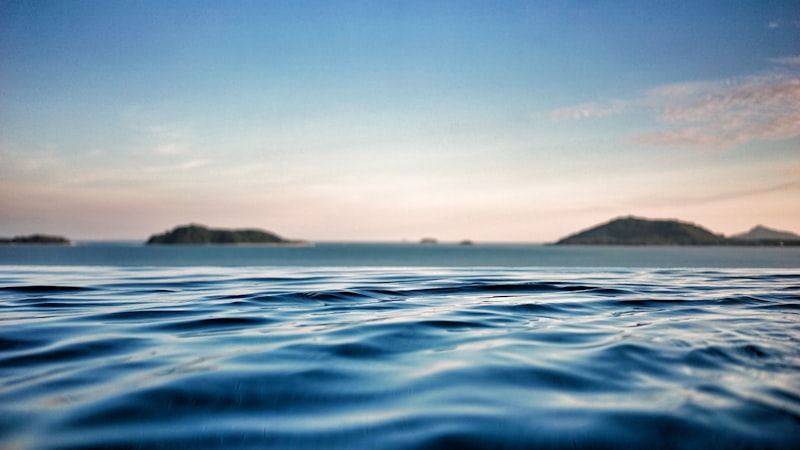The Caspian Sea, a vast expanse of water renowned for its beauty and rich biodiversity, is located in multiple countries. This stunning body of water, often described as the largest enclosed inland body of water on Earth, is bordered by five nations: Russia, Iran, Kazakhstan, Turkmenistan, and Azerbaijan.
Russia holds the largest share of the Caspian Sea, occupying roughly 40% of its coastline. This northernmost region encompasses major cities such as Astrakhan and Makhachkala. The Russian section of the Caspian Sea is not only significant for its size but also for its oil and gas reserves, which have contributed to the country’s economy and energy resources.
To the south of Russia, we find Iran, which possesses approximately 20% of the Caspian Sea’s coastline. Iranian coastal cities like Bandar-e Anzali and Gorgan are gateways to this remarkable body of water. Iran has been actively involved in preserving the Caspian Sea’s ecosystem, recognizing its ecological value and striving to maintain its delicate balance.

Kazakhstan, located to the northeast of the Caspian Sea, holds roughly 20% of its shoreline. Cities such as Aktau and Atyrau dot the Kazakh coast, serving as hubs for economic activities related to the sea, including fishing and oil exploration. Kazakhstan has implemented measures to protect the Caspian Sea’s natural resources, promoting sustainable practices and conservation efforts.
In the southeastern part of the Caspian Sea lies Turkmenistan, which possesses approximately 12% of its coastline. Coastal cities such as Turkmenbashi and Hazar serve as gateways to its scenic shores. Turkmenistan recognizes the importance of the Caspian Sea and has taken steps to enhance cooperation with neighboring countries for the preservation and sustainable management of this unique body of water.
Lastly, Azerbaijan, located in the western part of the Caspian Sea, holds approximately 8% of its coastline. Azerbaijani cities like Baku and Sumqayit offer breathtaking views of the Caspian Sea. Azerbaijan has been actively involved in various economic activities related to the sea, including fishing, tourism, and oil extraction.
The Caspian Sea is a remarkable geographical feature shared by multiple countries. Its shores touch Russia, Iran, Kazakhstan, Turkmenistan, and Azerbaijan, each contributing to the cultural, environmental, and economic aspects of this awe-inspiring body of water.
Breaking News: Caspian Sea International Border Dispute Resolved, Final Verdict Announced
Have you heard the latest news? The long-standing international border dispute over the Caspian Sea has finally been resolved! After years of negotiations and diplomatic efforts, a final verdict has been announced, bringing an end to this contentious issue. This breakthrough decision marks a significant milestone in the history of the Caspian Sea region and has far-reaching implications for all countries involved.
For decades, the Caspian Sea, the world’s largest inland body of water, has been a subject of dispute among its neighboring nations — Russia, Iran, Azerbaijan, Kazakhstan, and Turkmenistan. The primary point of contention revolved around delineating the maritime boundaries and dividing the rich oil and gas resources that lie beneath its waters. The complexity of the issue was exacerbated by the absence of a clear legal framework governing the Caspian Sea, leading to prolonged negotiations.
However, after years of intense discussions, the five coastal states have reached an agreement on the status and division of the Caspian Sea. Under the newly established legal framework, the sea will be considered neither fully a sea nor a lake but rather a “special legal regime.” This classification grants each country sovereign rights over the waters extending 15 nautical miles from their coastline, while the remaining area will be designated as shared territory.
The final verdict also outlines provisions for the exploitation of the region’s vast energy resources. With estimated reserves of up to 50 billion barrels of oil and nearly 300 trillion cubic meters of natural gas, the Caspian Sea has immense economic potential. The agreement stipulates that any future oil and gas projects will require cooperation between the neighboring countries, fostering regional stability and economic growth.
This resolution not only resolves a longstanding dispute but also sets a precedent for peaceful conflict resolution and cooperation among nations. It demonstrates the power of diplomacy and dialogue in resolving complex geopolitical issues. By reaching a consensus, the Caspian Sea countries have paved the way for increased collaboration in various areas, including trade, transportation, and environmental protection.
The announcement of the resolution to the Caspian Sea international border dispute is a momentous occasion. This decision brings clarity to the legal status of the sea, ensures equitable distribution of its resources, and promotes cooperation among neighboring nations. It is indeed a historic milestone that will shape the future of the Caspian Sea region and have a lasting impact on its socio-economic development.
Hidden Treasures Unveiled: Exploring the Rich Marine Life of the Caspian Sea
Have you ever wondered what lies beneath the surface of the Caspian Sea? Prepare to be amazed as we dive into the depths of this magnificent body of water, unveiling its hidden treasures and exploring the rich marine life that calls it home.
Stretching across five countries – Russia, Iran, Kazakhstan, Turkmenistan, and Azerbaijan – the Caspian Sea is the largest enclosed inland body of water on Earth. This vast expanse holds a diverse ecosystem teeming with remarkable species waiting to be discovered.
Imagine swimming alongside the elusive Beluga sturgeon, known for its prized caviar. These majestic creatures can reach lengths of up to six meters and are a symbol of the Caspian Sea’s natural abundance. Witnessing them glide through the water is truly a sight to behold.
But the wonders don’t stop there. The Caspian Sea harbors over 140 different fish species, including the Caspian kutum, the largest freshwater fish in the world. Its silver scales shimmer in the sunlight as it navigates through the underwater landscape. It’s an experience like no other – exploring a realm where giants roam.
As we venture deeper, we encounter vibrant coral reefs that rival those found in tropical waters. These intricate ecosystems provide shelter and sustenance for countless marine organisms. Delicate sea anemones sway gently in the currents, while colorful schools of fish dart playfully between the corals. It’s a symphony of life and color beneath the waves.
The Caspian Sea also serves as a vital migratory route for numerous bird species. From graceful flamingos to regal pelicans, these feathered travelers make pit stops along their arduous journeys, finding nourishment and rest within the sea’s coastal wetlands. It’s a true spectacle to witness the sky fill with the beating wings of these avian marvels.
The Caspian Sea is a hidden gem brimming with awe-inspiring marine life. The unique combination of diverse fish species, vibrant coral reefs, and migratory birds make it a treasure trove waiting to be explored. So, dive into this underwater paradise and discover the wonders that lie beneath the surface. Get ready for an adventure you’ll never forget!
Caspian Sea’s Ecological Crisis: Threats to Biodiversity and Conservation Efforts
The Caspian Sea, a majestic body of water nestled between Europe and Asia, is facing an ecological crisis that poses significant threats to its biodiversity. This article delves into the challenges this unique ecosystem faces and explores the ongoing efforts to conserve its precious natural treasures.

One of the primary concerns impacting the Caspian Sea’s delicate balance is pollution. Industrial activities, including oil extraction and shipping, have led to the discharge of toxic substances into the sea. This pollution disrupts the delicate marine ecosystem, affecting both flora and fauna. The consequences ripple through the food chain, endangering various species that call the Caspian Sea home.
Invasive species present another pressing issue. Non-native plants and animals introduced to the region disrupt the natural order, outcompeting native species and altering the ecosystem. These invaders often lack natural predators, allowing their populations to explode and further exacerbate the ecological imbalance.
Overfishing also threatens the Caspian Sea’s biodiversity. The demand for species like sturgeon, whose eggs are used for caviar, has led to unsustainable fishing practices. As a result, sturgeon populations have plummeted, negatively impacting the entire ecosystem. Conservationists and policymakers are working tirelessly to enforce regulations and promote sustainable fishing practices to safeguard the sea’s biodiversity.
Efforts to tackle the ecological crisis in the Caspian Sea are underway. International organizations collaborate with regional governments to develop conservation strategies and implement protective measures. These initiatives aim to reduce pollution, control invasive species, and restore damaged habitats. Additionally, education and awareness programs help instill a sense of responsibility and encourage individuals to take part in preserving this unique ecosystem.
The Caspian Sea faces significant ecological challenges that threaten its biodiversity. Pollution, invasive species, and overfishing pose serious risks to this fragile ecosystem. However, through collaborative conservation efforts and sustainable practices, there is hope for the future. By protecting and restoring the Caspian Sea’s natural treasures, we can ensure the survival of its diverse species and preserve this remarkable ecosystem for generations to come.
Landmark Energy Agreement: Caspian Sea Holds Vast Oil and Gas Reserves
The Caspian Sea, a majestic body of water nestled between Europe and Asia, has recently become the focal point of a landmark energy agreement. This awe-inspiring region is not only renowned for its breathtaking beauty but also holds vast reserves of oil and gas beneath its shimmering surface. The significance of this discovery cannot be overstated, as it promises to shape the future of global energy production and solidify the Caspian Sea’s position as a strategic resource hub.
Imagine the sheer magnitude of these reserves, lying dormant beneath the tranquil waters. It’s akin to discovering hidden treasure in an untouched paradise. The Caspian Sea’s potential seems boundless, with estimates suggesting that it could hold a staggering 48 billion barrels of oil and 292 trillion cubic feet of natural gas. Such abundance hints at an energy bonanza waiting to be unlocked, offering countless opportunities for economic growth and development.
As we delve deeper into the details of this energy agreement, one can’t help but marvel at the collaborative effort involved. Multiple countries bordering the Caspian Sea – including Azerbaijan, Kazakhstan, Russia, Iran, and Turkmenistan – have come together to explore and exploit these valuable resources. This unprecedented cooperation demonstrates the power of unity and shared goals, transcending political boundaries in pursuit of a brighter, more sustainable future.
The Caspian Sea’s oil and gas reserves not only hold immense economic potential but also play a pivotal role in meeting the world’s growing energy demands. As our reliance on fossil fuels continues, harnessing these resources becomes paramount. By tapping into the Caspian Sea’s reserves, we can secure a stable supply of energy and reduce our dependence on volatile regions.
In essence, the Caspian Sea’s landmark energy agreement signifies a turning point in global energy dynamics. It symbolizes the fusion of nature’s wonders with human ingenuity, presenting us with an opportunity to shape our energy future responsibly. The vast reserves of oil and gas beneath this awe-inspiring body of water are not merely a stroke of luck but rather a testament to the untapped potential that lies within our reach.
So, let us embark on this journey together, as we unlock the Caspian Sea’s hidden treasures and harness its energy to power a brighter tomorrow. The world awaits, ready to witness the transformative impact of this historic agreement.